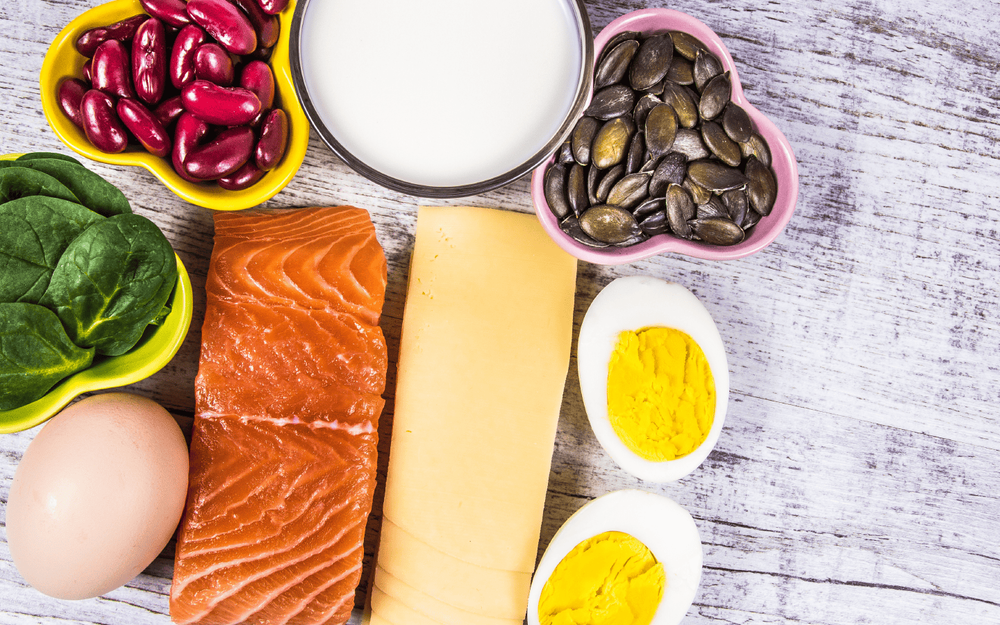
Why are dietary fats important?
Fat often gets a bad reputation, but not all fats are created equal. While some types can negatively affect heart health and weight when eaten in excess, others are essential for the body to function properly. So, why are dietary fats important, and how can you make choices that benefit your long-term health?
In this guide, we explore what dietary fats do, the difference between healthy and unhealthy fats and how to build a balanced, fat-friendly diet that supports your overall wellbeing.
What do dietary fats do in the body?
Fats are one of the three main macronutrients in the human diet, alongside carbohydrates and protein. While fat provides more calories per gram than the other two (9 calories per gram versus 4), it plays several vital roles in the body beyond energy production:
-
Supports cell growth and structure: Every cell in your body contains fat. Cell membranes are made up of lipid bilayers, which rely on fats to maintain their strength and flexibility.
-
Aids nutrient absorption: Vitamins A, D, E and K are fat-soluble, meaning they can only be absorbed when fat is present in your diet.
-
Helps hormone production: Certain fats are precursors to hormones, which regulate everything from metabolism and reproductive health to stress and mood.
-
Protects vital organs: Fat acts as a cushion for internal organs and helps regulate body temperature.
-
Keeps you feeling full: Including fat in your meals slows digestion and helps you feel more satisfied, reducing the temptation to overeat.
These essential roles mean that avoiding fat altogether isn’t just unnecessary - it can be harmful to your health.
The different types of fat: which are good and which should be limited?
Understanding the different types of dietary fat is key to making informed choices. While all fats are high in energy, their effects on your body vary significantly.
1. Unsaturated fats (the “healthy” fats)
These fats can help lower bad cholesterol, reduce inflammation and support heart and brain health.
-
Monounsaturated fats: Found in olive oil, avocados, almonds and peanuts. These fats help maintain healthy cholesterol levels and are a staple of heart-healthy diets.
-
Polyunsaturated fats: Includes essential omega-3 and omega-6 fatty acids, found in oily fish (salmon, mackerel), flaxseeds, walnuts and sunflower oil. Omega-3s, in particular, are known for their anti-inflammatory effects.
2. Saturated fats (to be limited)
Typically found in animal products such as butter, cream, cheese and fatty cuts of meat. They can raise LDL (bad) cholesterol levels, especially when consumed in large amounts.
While some recent studies suggest small amounts of saturated fat may not be as harmful as once thought, most health guidelines recommend keeping saturated fat intake to no more than 10% of total daily calories.
3. Trans fats (to avoid)
These are artificially produced fats found in some processed and packaged foods, such as pastries, fried snacks and margarine. Trans fats can raise bad cholesterol, lower good cholesterol and increase inflammation, making them harmful even in small amounts.
Why are fats essential for good health?
Healthy fats don’t just keep your body running smoothly, they actively contribute to better long-term health. Here’s how:
Heart health Unsaturated fats help reduce blood levels of LDL cholesterol while increasing HDL (good) cholesterol. This supports clearer arteries, lowers blood pressure and reduces the risk of cardiovascular disease.
Brain function The brain is made up of nearly 60% fat, and omega-3 fatty acids are especially important for maintaining brain structure and function. These fats are linked to improved memory, focus and emotional wellbeing.
Hormone balance Fats are needed for the production of key hormones, including those that regulate reproductive health, thyroid function and stress response.
Blood sugar control Including fat in your meals can slow the absorption of glucose, helping to regulate blood sugar levels and prevent spikes and crashes in energy.
Immune support Certain fats help regulate the body’s inflammatory response, keeping your immune system functioning effectively.
Signs you might not be getting enough healthy fats
Cutting fat too drastically, whether through strict dieting or by avoiding oils and animal products altogether, can lead to nutritional imbalances. Signs of inadequate fat intake include:
-
Dry or flaky skin
-
Constant hunger or trouble feeling full
-
Poor concentration or memory
-
Feeling cold frequently
-
Hormonal imbalances (irregular periods, fatigue, mood swings)
-
Deficiency in fat-soluble vitamins (A, D, E, K)
If you’re experiencing these symptoms, it may be time to reassess your fat intake.
How to include more healthy fats in your diet
Getting enough healthy fat doesn’t have to mean drastic changes. Small swaps and mindful additions can help you meet your needs without overdoing it.
Here are some simple swap ideas:
-
Use olive oil or avocado oil instead of butter for cooking and baking
-
Choose natural nut butters instead of sweet spreads
-
Replace fatty cuts of meat with oily fish, such as sardines or salmon
-
Swap crisps and biscuits for a handful of nuts or seeds
-
Add sliced avocado to toast, salads or sandwiches
-
Sprinkle ground flaxseed or chia seeds on porridge or yogurt
Foods rich in healthy fats include:
-
Avocados
-
Oily fish (salmon, trout, sardines)
-
Nuts (almonds, walnuts, cashews)
-
Seeds (chia, flax, sunflower)
-
Extra virgin olive oil
-
Nut butters
-
Eggs
-
Tofu and soy products
Portion control is important, as fats are calorie-dense. A balanced plate should include a source of healthy fat, but not be dominated by it.
Are there any health conditions affected by fat intake?
Certain health conditions require closer attention to dietary fat:
-
High cholesterol or heart disease: Reducing saturated fats and eliminating trans fats is key. Focus on unsaturated fats for heart support.
-
Type 2 diabetes: Healthy fats can help manage blood sugar levels, especially when replacing refined carbs.
-
Gallbladder issues: A low-fat diet may be recommended to reduce strain on the digestive system.
-
Obesity or weight concerns: While fats are nutritious, portion control remains crucial.
Always speak to your GP or a registered dietitian before making significant changes to your fat intake, especially if you have a medical condition.
Regular health checks can help you monitor your progress
Understanding how your diet affects your body is essential. Regular health checks can help identify whether your fat intake is supporting or hindering your overall health. With a Bluecrest health check, you can track key indicators such as:
-
Cholesterol levels (LDL, HDL, total)
-
Triglyceride levels
-
Blood sugar control
-
Inflammation markers
-
Body composition and metabolic health
These insights give you a clearer picture of your wellbeing and help you make informed choices tailored to your needs.
Track how dietary fats impact your health
Understanding which fats to eat is a great start, but knowing how your body responds is even more powerful. Our Health MOT gives you a detailed look at key health markers that can be influenced by dietary fat, including cholesterol levels, triglycerides and heart health indicators.
Each health assessment includes fast, accurate results from fully accredited UK laboratories and a detailed Results Report that helps you make sense of your numbers. You'll also receive 12 months of access to a 24/7 GP helpline, so you have expert guidance when you need it and not just on the day of your test.
With convenient locations across the UK, it’s easy to fit a check into your routine.














